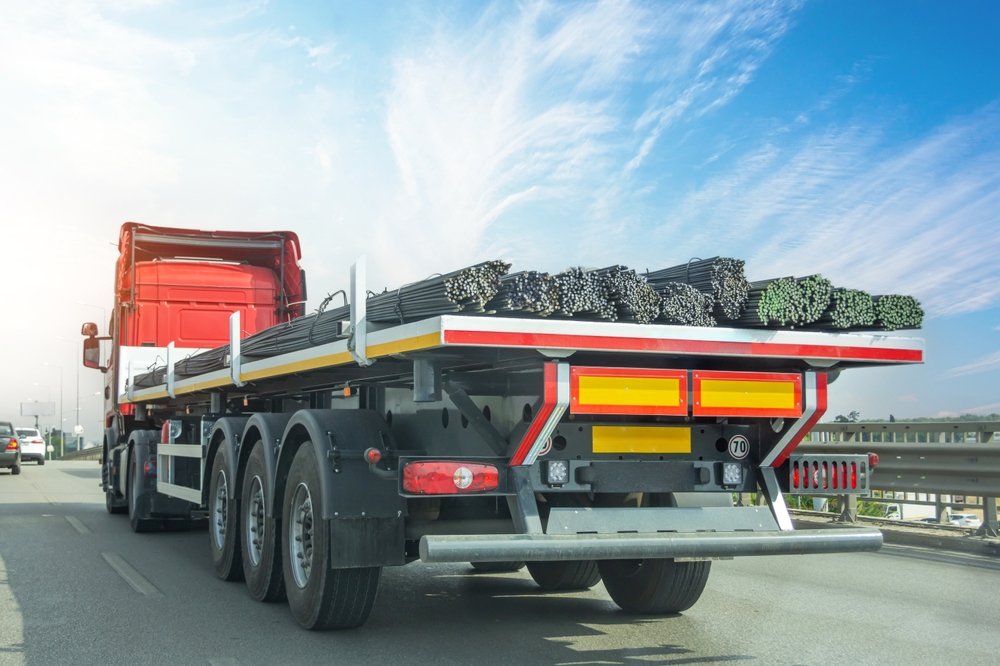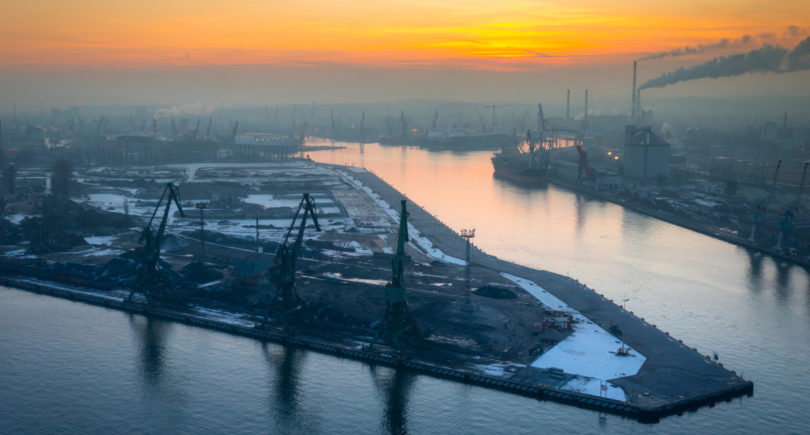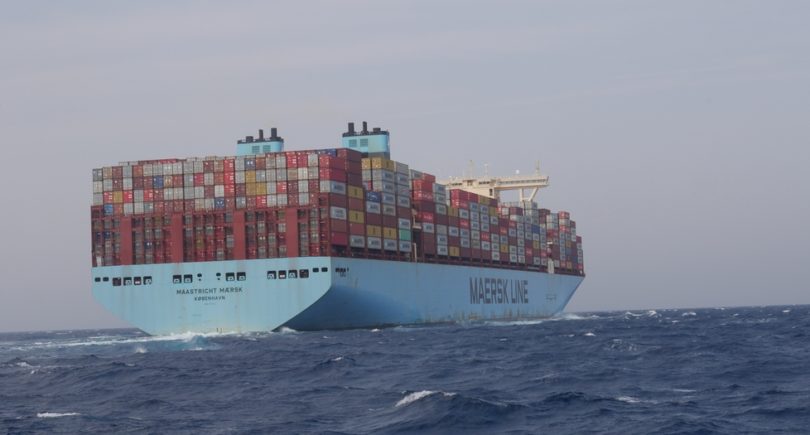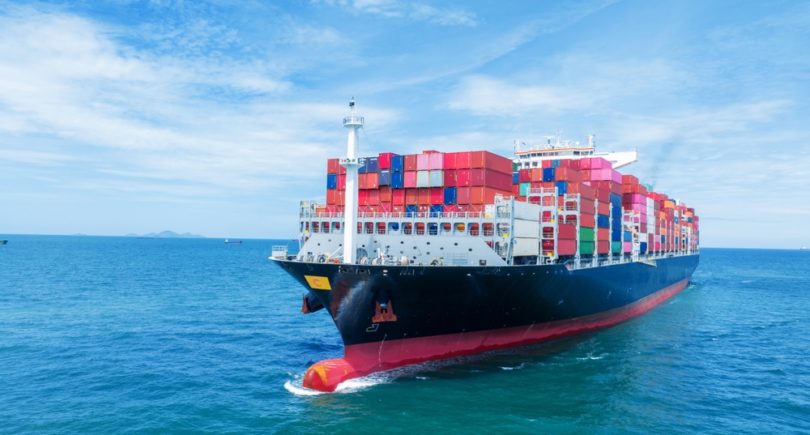
Posts Infrastructure metal products 2382 15 January 2024
Losses for just one enterprise in the industry exceed $20 million per month
The blockade of the Polish border, which started on November 6, 2023, and has lasted until today, has hit the Ukrainian economy very hard. According to the NBU, Ukraine lost $160m in exports and $700m in imports last November alone. The losses of Ukrainian steel trading companies are a small percentage of the total damage, but are becoming a huge threat to their export operations.
The cost of export delivery in November-December 2023 increased several times, customers canceled contracts and made claims due to the failure to meet delivery deadlines, imported products were delayed – these are not all the consequences of the blockade for companies in the industry. Cumulatively, the blockade has already cost millions of dollars in direct and indirect damage, which is only growing.
Consequences for the steel industry
Due to the war, road transport has become more important for exports of steel products due to the almost complete stoppage of maritime transportation and limited capacity of railway border crossings and European railway infrastructure. Therefore, any restrictions on transportation at the borders with the EU, which is our main trading partner, negatively affect the export potential of Ukrainian metallurgy and import opportunities. In November-2023 alone, Ukrainian exports of ferrous metals dropped by 5.1% due to the blockade, while imports dropped by 14.9%.
«The blocking of the main Ukrainian-Polish crossings has led to an accumulation of traffic at Slovak and Hungarian crossings, which are physically unable to cope with them. The 400 km detour, which carriers are forced to make, costs customers at least 600 euros, and if you add 14-25 days of idle transport at 100 euros per day, then the cost increases by 2000-3000 euros per car. The turnover of flights of carriers has fallen by half – previously they made 1.5-2 round trips per month, at the moment – it is not always possible to make 1 round trip, respectively, the delivery time for customers has increased by 2-3 times, depending on the direction. But the worst thing is that nobody knows when and how it will all end,» Diana Piloyan, director of Forlogist LLC, commenting on the blockade of the Polish-Ukrainian border.
Ukrainian steel companies have a significant share of exports by road transport in the overall logistics structure. Everything depends on the nature of steel products and the specifics of logistics. For example, at the end of nine months of 2023, 38% of all shipped products of Interpipe were delivered to European customers by road transport.
In November 2023, the pipe and wheel company Interpipe lost or additionally spent $1.2 million due to the blockade of the Polish-Ukrainian border. In turn, the losses of the plant Stalkanat due to the blockade in November-December last year amounted to $1.8 million. However, these are figures for individual enterprises, which do not reflect the full scale of losses in the industry.
«Prior to the border blockade, up to 10 thousand tons of rolled products were shipped to Europe by truck from one enterprise every month; up to 20 thousand tons of the plant’s already processed products were exported by its partners. Since the borders were blocked, the enterprise was forced to stop truck shipments, as well as its partners, who simply stopped buying the necessary products. That is, on average, losses in exports of rolled products due to border blocking reach 25-30 thousand tons per month for the amount of about $18-21 million. And this is only for one enterprise,» says Oleksandr Kalenkov, president of Ukrmetalurgprom.
The border blockade has also had a strong impact on the Ukrainian metal trading business, especially on those companies whose range of metal products is heavily tied to imports.
«Trucking tariffs for delivery of rolled metal products from Europe have increased 3-4 times. This increase in logistics costs adds 10-15% on average to the price of imported steel, or approximately up to UAH 7 thousand per ton of steel products. The delivery time has also increased significantly. If earlier, if there was no goods in the warehouse in Lviv, we could promptly bring the products from Europe in 2-3 days, now no one is able to guarantee delivery in less than 2 weeks, because trucks on average stand at the border for 12-14 days», Vitaliy Prytula, director of the company Evrometal, says.
Thus, the impact of the blockade on the operations of individual companies in the industry largely depends on the structure of product supplies and sales. For example, Metinvest-SMC sells most of its steel products on the domestic market, but also imports.
«Due to the loss of two steel mills in Mariupol, we have restructured to import thick hot-rolled sheet both from our own Italian enterprises and other European, Turkish and Chinese plants. The blockade of the western borders led to the disruption of scheduled delivery dates of rolled metal products, search for alternative ways of crossing the border and other crossing points, and prompt change of supplier. But this was seen no longer as a problem, but as a task to be solved,» Olexander Vedernikov, Head of Marketing Department of Metinvest-SMC, says.
The blockade of three road crossings on the border with Poland continues, which means that the industry’s losses are growing. So far, it is difficult to even calculate the full scale of damage.
«It is still difficult to calculate the full damage to Ukraine’s steel industry due to the blocking of the Polish border, but the fact that it is substantial is beyond doubt,» Kalenkov emphasizes.
Logistics solutions
From the very beginning of the blockade, steel and steel trading companies have been taking measures to restructure their logistics routes. First of all, companies in the industry are trying to switch to railroad delivery, which leads to an increased load on railroad infrastructure.
«The reduction in export road transportation and its compensation by increasing the load on railroad transportation significantly complicates the border crossing procedure at railway crossings with the European Union, which, in turn, leads to large losses in exports of steel products,» Olexander Kalenkov says.
The situation at border road crossings has led to an increase in the transportation burden, cost and time of transportation of products.
«The problem of the blockade was partially solved by redirecting trucks through the borders of Slovakia, Hungary, and Romania, but both the delivery rates and its terms increased to about the same as they were when traveling through the Ukrainian-Polish border. Such bypass options only added more predictability in delivery times,» Prytula notes.
After almost two years of war, rebuilding logistics is no longer an unsolvable problem for Ukrainian businesses, but it still requires a lot of time and money.
«We have a metalware production facility, some of whose products go to the domestic market and others to export. Due to the border blockade, there was a certain pause in the shipment of products. But gradually the logistical problem was solved, which allowed us to restore export volumes, but not in full. This requires reorientation of automobile logistics to railway logistics, which is a complicated issue and takes time,» emphasizes Sergey Kovalenko, Commercial Director of Vartis National Network of Metal Centers.
According to various information from sources in Poland and Ukraine, blocking or partial blocking of crossings is possible until June 2024, which leads to even higher transportation tariffs, reduced availability of transport fleet, and negative impact on export shipments. The long-term negative impact will not be seen until late 2024. Once again, export logistics-related challenges have a negative impact on the Ukrainian economy.




